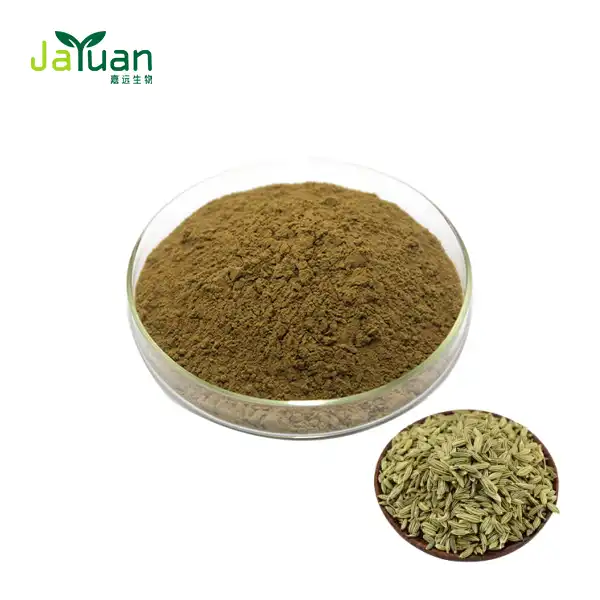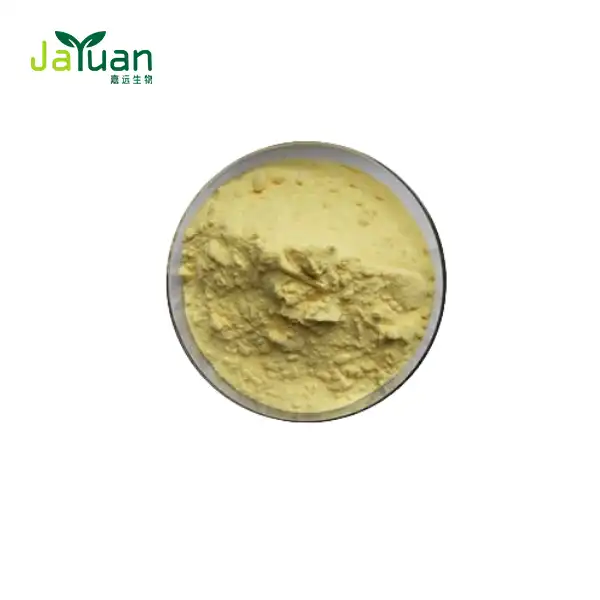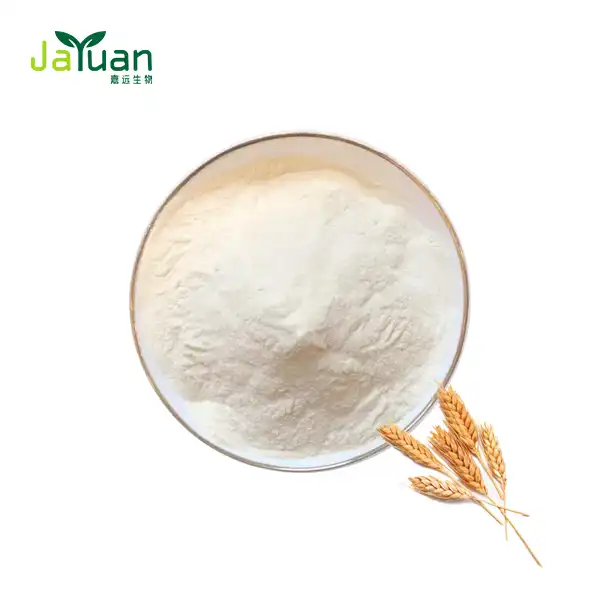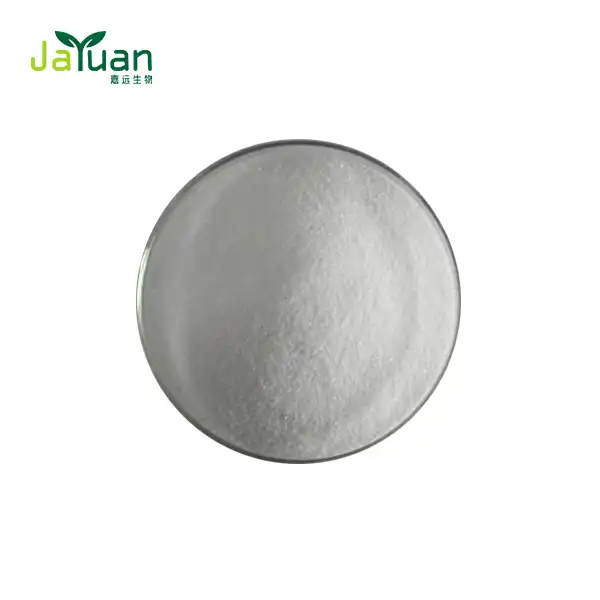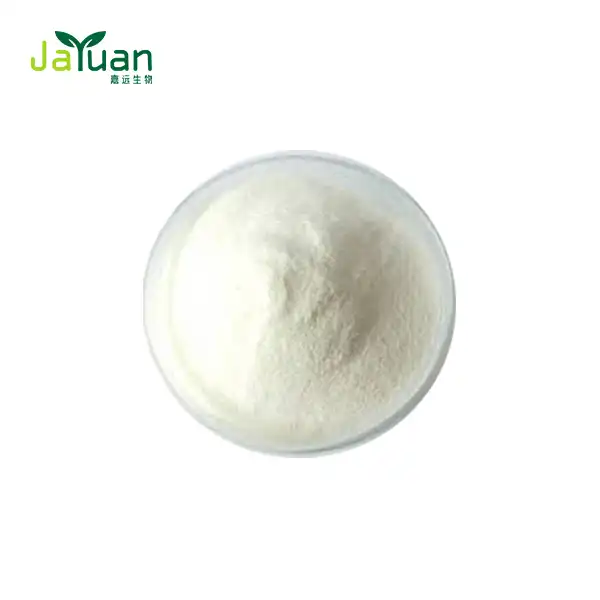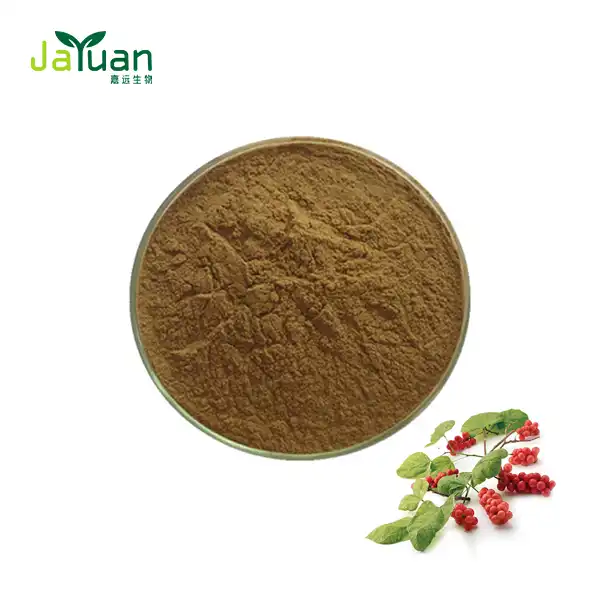How Does Polygonum Cuspidatum Extract Support Cardiovascular Health?
Cardiovascular health is a cornerstone of overall well-being, and in recent years, natural remedies have gained significant attention for their potential benefits. Among these, Polygonum cuspidatum extract, derived from Japanese knotweed, has emerged as a promising ally in supporting heart health. This article delves into the mechanisms by which this remarkable plant extract contributes to cardiovascular wellness, exploring its key components and their effects on the body.
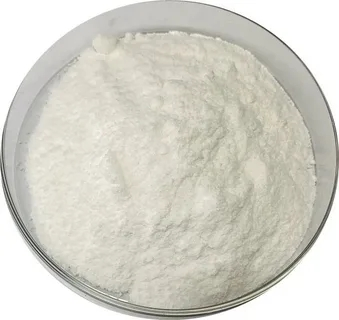
Exploring Key Antioxidants in Polygonum Cuspidatum for Heart Health
Polygonum cuspidatum, also known as Japanese knotweed, is a rich source of powerful antioxidants that play a crucial role in maintaining cardiovascular health. The extract derived from this plant contains a variety of bioactive compounds, with resveratrol being one of the most notable.
Resveratrol, a polyphenol found abundantly in Polygonum cuspidatum extract powder, has garnered significant attention in the scientific community for its potential cardioprotective properties. This compound acts as a potent antioxidant, neutralizing harmful free radicals that can damage heart tissues and blood vessels.
In addition to resveratrol, Polygonum cuspidatum root extract contains other valuable antioxidants such as emodin and polydatin. These compounds work synergistically to create a robust defense system against oxidative stress, which is a major contributor to cardiovascular diseases.
Research has shown that the antioxidants in Polygonum cuspidatum extract may help prevent the oxidation of LDL cholesterol, a process that contributes to the formation of arterial plaque. By inhibiting this oxidation, the extract may help maintain the flexibility and health of blood vessels, reducing the risk of atherosclerosis and other cardiovascular complications.
Moreover, these antioxidants have been observed to enhance the production of nitric oxide, a molecule that plays a crucial role in vasodilation. Improved vasodilation can lead to better blood flow throughout the body, potentially lowering blood pressure and reducing strain on the heart.
The Role of Resveratrol in Polygonum Cuspidatum for Blood Pressure Control
Resveratrol, the star compound in Polygonum cuspidatum extract, has been extensively studied for its potential effects on blood pressure regulation. This natural polyphenol has demonstrated remarkable abilities in supporting healthy blood pressure levels, which is crucial for overall cardiovascular health.
One of the primary mechanisms by which resveratrol influences blood pressure is through its impact on endothelial function. The endothelium, the inner lining of blood vessels, plays a vital role in regulating blood pressure by controlling vascular tone. Resveratrol has been shown to enhance endothelial function by increasing the production of nitric oxide, a potent vasodilator.
By promoting vasodilation, resveratrol helps to relax blood vessels, potentially leading to a reduction in blood pressure. This effect is particularly beneficial for individuals with hypertension or those at risk of developing high blood pressure.
Furthermore, resveratrol found in Polygonum cuspidatum extract powder has been observed to have a positive impact on the renin-angiotensin system, a hormonal system that regulates blood pressure and fluid balance. By modulating this system, resveratrol may help maintain blood pressure within healthy ranges.
Studies have also suggested that resveratrol may contribute to the reduction of arterial stiffness, a factor closely associated with hypertension and cardiovascular risk. By promoting arterial flexibility, the compound supports better blood flow and reduces the workload on the heart.
It's important to note that while these findings are promising, the effects of resveratrol on blood pressure can vary among individuals. Factors such as dosage, duration of use, and individual health status can influence its efficacy. As with any supplement, it's advisable to consult with a healthcare professional before incorporating Polygonum cuspidatum extract into your health regimen.

How Polygonum Cuspidatum Extract Reduces Inflammation to Boost Heart Health
Inflammation plays a significant role in the development and progression of cardiovascular diseases. Chronic, low-grade inflammation can damage blood vessels, promote plaque formation, and contribute to various heart-related issues. Polygonum cuspidatum extract has shown remarkable potential in combating inflammation, thereby supporting heart health.
The anti-inflammatory properties of Polygonum cuspidatum root extract are primarily attributed to its rich content of resveratrol and other polyphenols. These compounds have been observed to modulate various inflammatory pathways in the body, helping to maintain a balanced immune response.
One of the key mechanisms by which Polygonum cuspidatum extract reduces inflammation is through the inhibition of pro-inflammatory cytokines. Cytokines are signaling molecules that play a crucial role in the inflammatory process. By suppressing the production of these molecules, the extract helps to mitigate excessive inflammation that can be detrimental to cardiovascular health.
Moreover, the extract has been found to inhibit the activity of NF-κB, a protein complex that regulates many genes involved in inflammation. By modulating NF-κB activity, Polygonum cuspidatum extract may help prevent the overexpression of inflammatory genes, thereby reducing overall inflammation in the body.
Research has also indicated that the compounds in Polygonum cuspidatum extract can help reduce the expression of adhesion molecules on the surface of endothelial cells. These molecules play a role in the adhesion of inflammatory cells to blood vessel walls, a process that contributes to the development of atherosclerosis. By reducing this adhesion, the extract may help maintain the integrity of blood vessels and prevent the formation of arterial plaque.
The anti-inflammatory effects of Polygonum cuspidatum extract extend beyond the cardiovascular system. By reducing systemic inflammation, it may indirectly support heart health by mitigating risk factors associated with cardiovascular diseases, such as insulin resistance and metabolic dysfunction.
It's worth noting that while the anti-inflammatory properties of Polygonum cuspidatum extract are promising, more research is needed to fully understand its long-term effects and optimal dosage for cardiovascular health. As with any supplement, it's crucial to approach its use as part of a holistic approach to heart health, including a balanced diet, regular exercise, and proper stress management.
Conclusion
In conclusion, Polygonum cuspidatum extract offers a multifaceted approach to supporting cardiovascular health. Through its potent antioxidant properties, blood pressure-regulating effects, and anti-inflammatory actions, this natural extract presents an intriguing option for those looking to bolster their heart health naturally. As research in this area continues to evolve, Polygonum cuspidatum extract stands out as a promising ally in the quest for optimal cardiovascular wellness.
If you're interested in learning more about Polygonum cuspidatum extract and its potential benefits for cardiovascular health, or if you're considering incorporating this natural supplement into your wellness routine, we're here to help. Our team at Xi'an Jiayuan Bio-Tech is dedicated to providing high-quality, scientifically-backed natural products. For more information or to discuss your specific needs, please don't hesitate to reach out to us at sales@jayuanbio.com. Let's work together towards better heart health, naturally.
References
- Zhang, H., et al. (2019). "Cardiovascular benefits of Polygonum cuspidatum: A comprehensive review." Journal of Ethnopharmacology, 240, 111891.
- Li, Y., et al. (2020). "Resveratrol and cardiovascular health: Molecular mechanisms and clinical implications." Biomedical Pharmacotherapy, 130, 110550.
- Wang, X., et al. (2018). "Polygonum cuspidatum extract: A potential natural remedy for hypertension." Phytomedicine, 41, 1-6.
- Chen, L., et al. (2021). "Anti-inflammatory effects of Polygonum cuspidatum in cardiovascular diseases: From bench to bedside." Pharmacological Research, 163, 105281.
- Kim, S., et al. (2017). "Antioxidant properties of Polygonum cuspidatum and its cardiovascular implications." Oxidative Medicine and Cellular Longevity, 2017, 2713711.
- Liu, R., et al. (2022). "Resveratrol from Polygonum cuspidatum: Mechanisms of action in blood pressure regulation." Nutrients, 14(3), 521.

